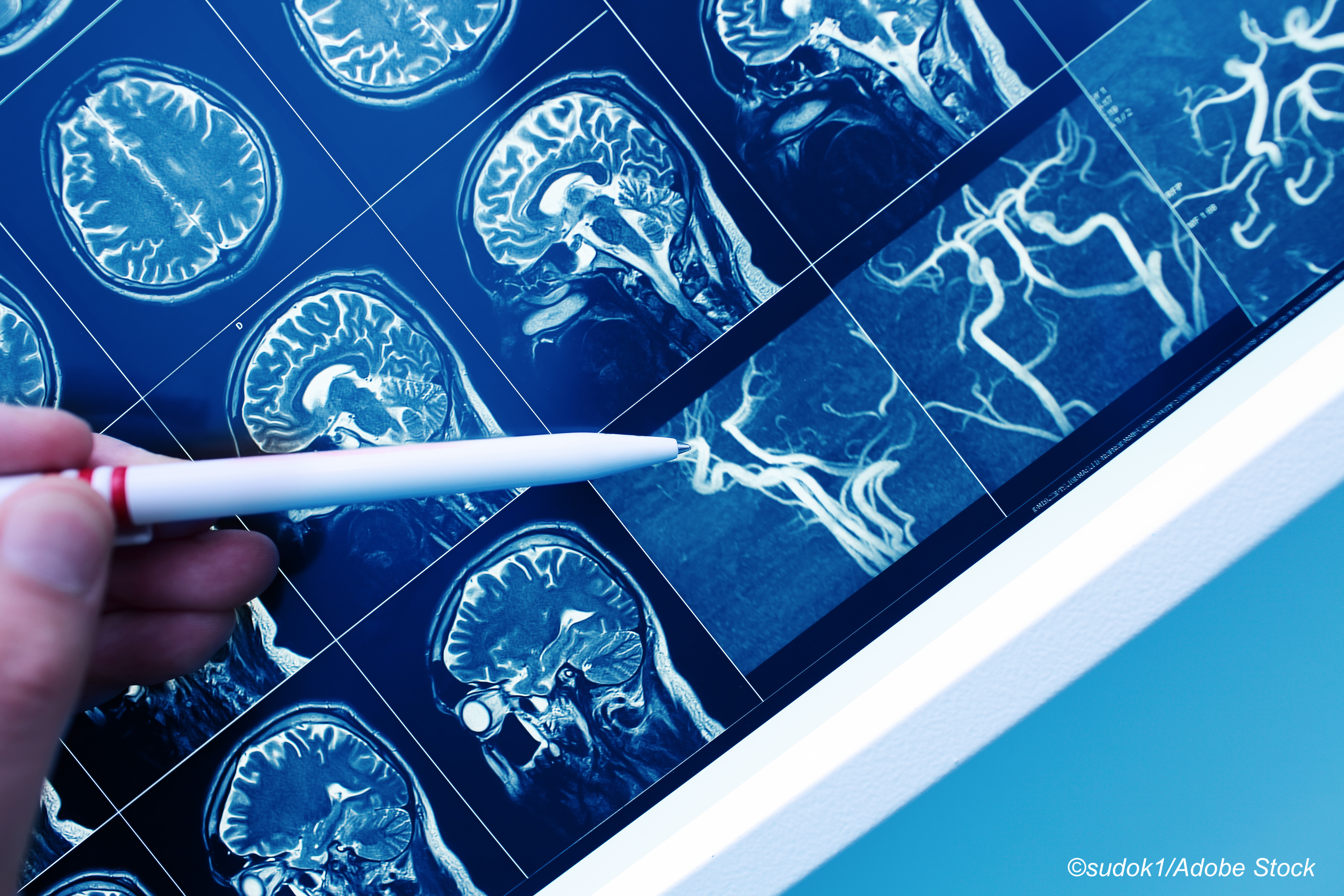Hours-long episodes of atrial fibrillation (AFib) in patients with cardiac implantable electronic devices (CIEDs) raised the odds of ischemic stroke for up to 30 days, an observational case-crossover study found.
AFib episodes of 5.5 hours or more raised the 30-day risk of ischemic stroke more than 3-fold, reported Daniel Singer, MD, of Massachusetts General Hospital in Boston, and co-authors in JAMA Cardiology. Stroke risk was highest within 5 days of a multi-hour episode of AFib (OR 5.00, 95% CI 2.62-9.55) and fell rapidly after that.
“Our results are consistent with the traditional view that AFib may be a causal risk factor for ischemic stroke in patients with CIEDs rather than a simple risk marker, although these attributes may not be mutually exclusive,” Singer and colleagues wrote.
“These effects were not seen in patients taking anticoagulants, suggesting that ischemic strokes in patients taking anticoagulants resulted from non-AFib mechanisms,” they added. “In addition, our findings indicate that stroke risk is a function of AFib duration and frequency.”
The analysis compared people who had AFib for 5.5 hours or more on any given day during days 1 to 30 (case period) versus days 91 to 120 (control period) before stroke. It included 891 patients in Optum or CareLink databases from January 2007 to March 2017; 65% were men, and the median age of the group was 76.
All participants had CIEDs and ischemic stroke with continuous monitoring in the 120 days pre-stroke; 60.0% had cardiac defibrillators, 27.2% pacemakers, and 12.8% insertable cardiac monitors, with 21.1% taking an oral anticoagulant.
Most participants (n=682, 76.5%) had no AFib meeting the threshold duration of 5.5 hours or more in either the case or control periods. AFib of 5.5 hours or more in both periods was seen in 16.0%.
Overall, 66 patients had discordant arrhythmic states, defined as having eligible AFib in one, but not the other, of the case and control periods. AFib of 5.5 hours or more was present in 52 participants in the case period versus 14 participants in the control period (OR 3.71, 95% CI 2.06-6.70).
“For those not meeting the 5.5-hour AFib threshold in either period, there was no or very little AFib throughout the 120 days pre-stroke,” the researchers noted.
“AFib greater than 23 hours on a given day was associated with the clearest increase in stroke risk (OR, 5.00, 95% CI 2.08-12.01),” they added. “Shorter thresholds were indeterminate, reflecting the fact that few strokes were preceded by days with 23 hours or less of AFib.”
In an editor’s note, Mintu Turakhia, MD, MAS, of Stanford University in Palo Alto and associate editor of JAMA Cardiology, called the findings “provocative,” and posed the question of whether strokes in patients with CIEDs that occur during periods of sinus rhythm are caused by preceding AFib or might benefit from anticoagulation.
“A clinical trial of time-delimited, rhythm-guided, direct oral anticoagulant treatment in continuously monitored patients who have paroxysmal AFib and do not have competing causes of stroke that may benefit from oral anticoagulation could answer this question,” he suggested.
“A pilot trial with insertable cardiac monitors has demonstrated feasibility,” Turakhia added. “Now, wearable technologies with background photoplethysmography-based AFib identification, coupled with confirmatory smartwatch electrocardiogram checks, are an attractive noninvasive option. If successful, reductions in total anticoagulant consumption could reduce bleeding and other complications of anticoagulation.”
“With treatment guidelines calibrated to low treatment thresholds based on outdated risk scores, there is no hope of finding a generalizable, untreated population from which to derive a new score,” he noted. “The current data, along with the totality of evidence supporting equipoise in lower-risk AFib populations, make a compelling case for a clinical trial.”
It would be premature to base anticoagulation decisions in patients with subclinical AFib on this study, Singer and co-authors observed, but results “provide support for trials of time-delimited anticoagulation for patients with infrequent multi-hour episodes of AFib and rigorous, continuous rhythm monitoring,” they wrote.
“The time delimited strategy could only be safely implemented in patients who have rigorous, continuous heart rhythm monitoring and access to potent, fast-acting anticoagulants,” they added.
Limitations of the study included the potential for residual confounding, though the researchers pointed out that the case-crossover design, with each patient acting as their own control, means that potential confounders (e.g., hypertension) would be the same in both case and control study periods.
“There maybe concern that our analysis used only the 66 patients with discordant rhythm patterns of a total of 891 patients with stroke,” Singer and colleagues noted. “As with standard case-control studies, our self-controlled analysis applies to the entire cohort, giving rise to the 891 stroke events.”
-
Hours-long episodes of atrial fibrillation (AFib) in patients with cardiac implantable electronic devices (CIEDs) raised the odds of ischemic stroke for up to 30 days, an observational study found.
-
Stroke risk was highest within 5 days of a multi-hour episode of AFib and fell rapidly after that.
Paul Smyth, MD, Contributing Writer, BreakingMED™
Singer was supported by the Eliot B. and Edith C. Shoolman fund of Massachusetts General Hospital.
Singer has received grants from Boehringer Ingelheim and Bristol Myers Squibb; personal fees from Boehringer Ingelheim, Bristol Myers Squibb, Fitbit, Johnson & Johnson, Merck, and Pfizer; and royalties from UpToDate.
Turakhia reported personal fees from Medtronic, Abbott, Sanofi, Pfizer, Myokardia, Johnson & Johnson, Milestone Pharmaceuticals, InCarda Pharmaceuticals, 100Plus, Forward Pharma, and AliveCor; and grants from Bristol Myers Squibb, the American Heart Association, Apple, and Bayer.
Cat ID: 913
Topic ID: 74,913,730,913,130,38,748,192,925



